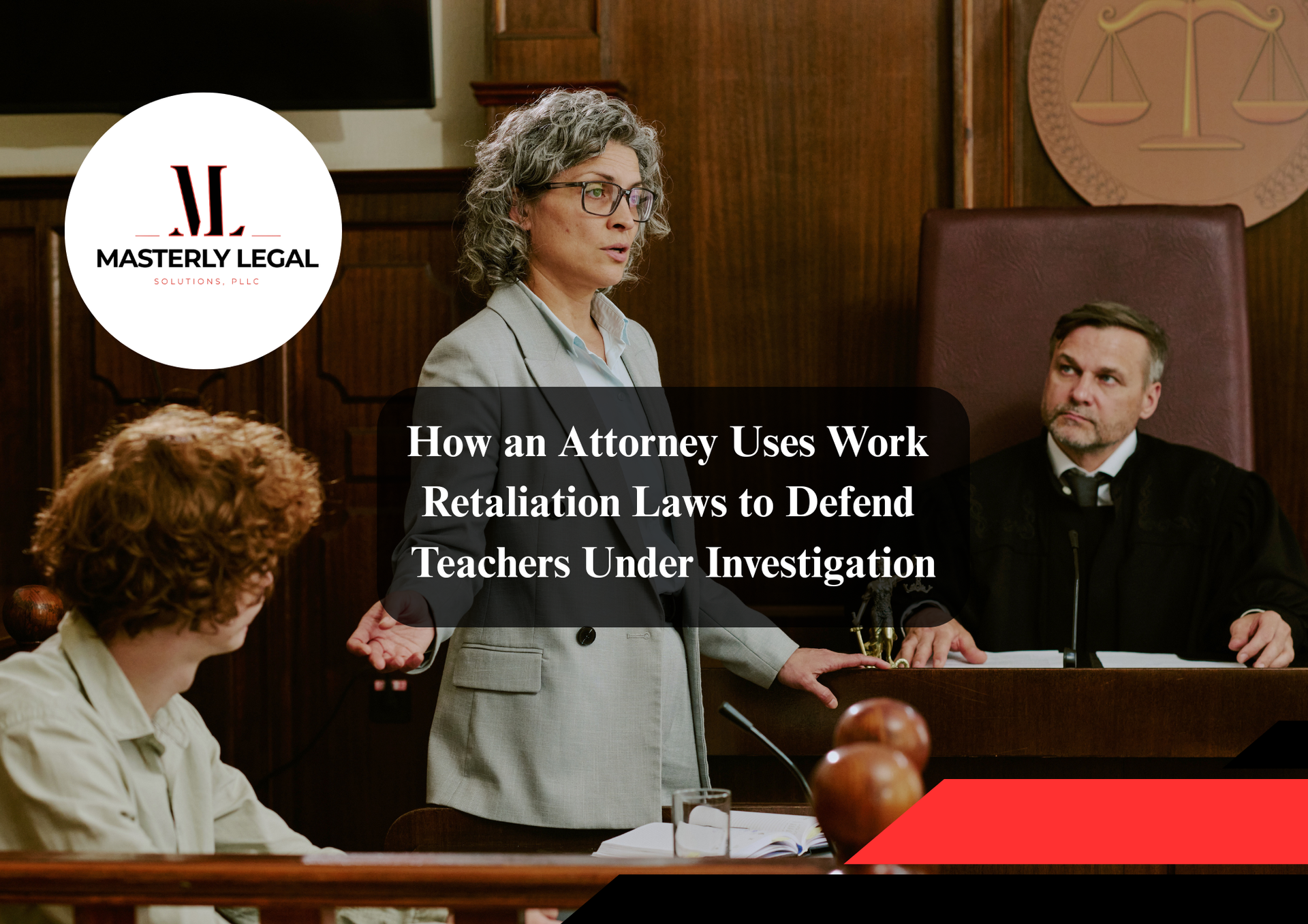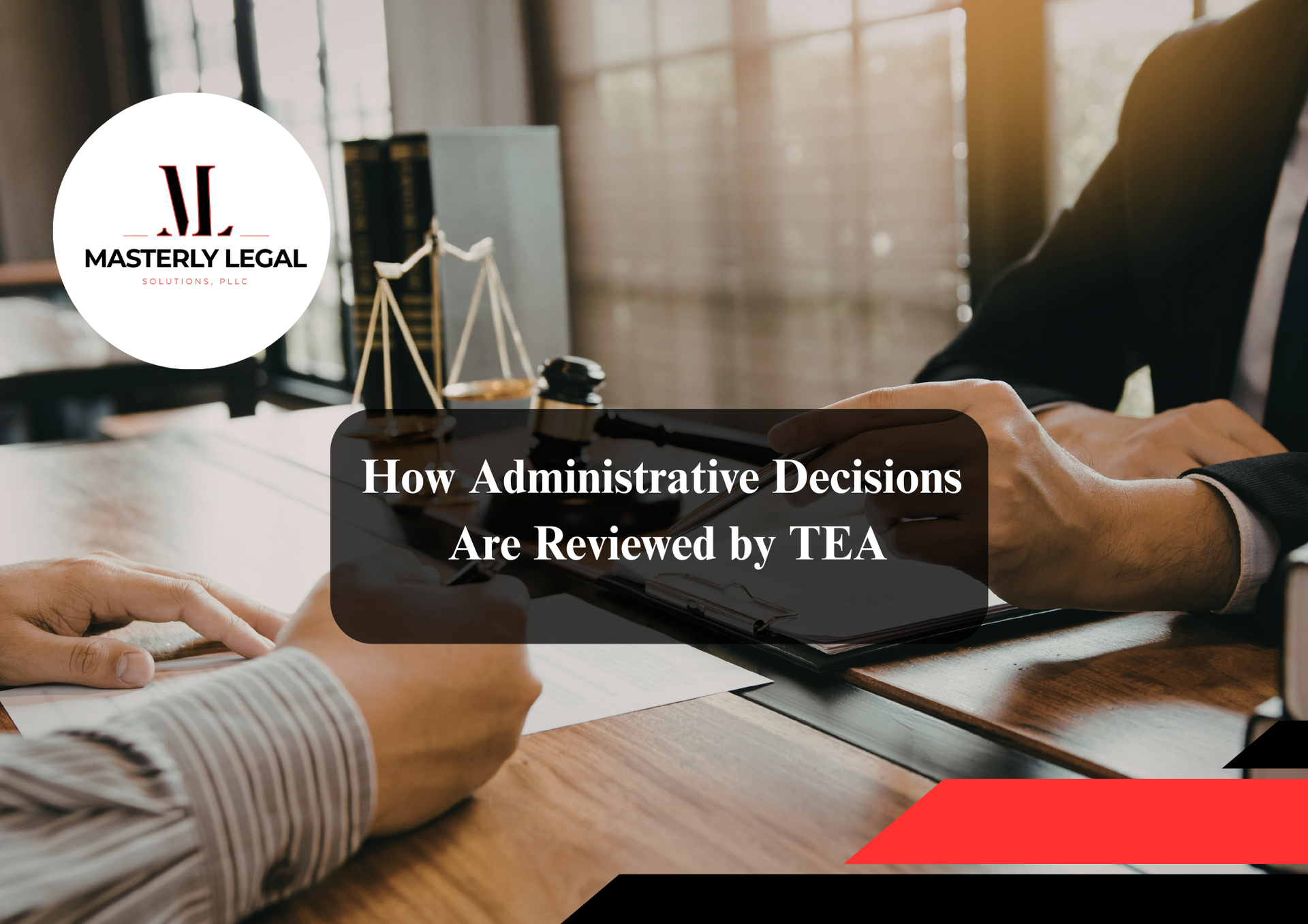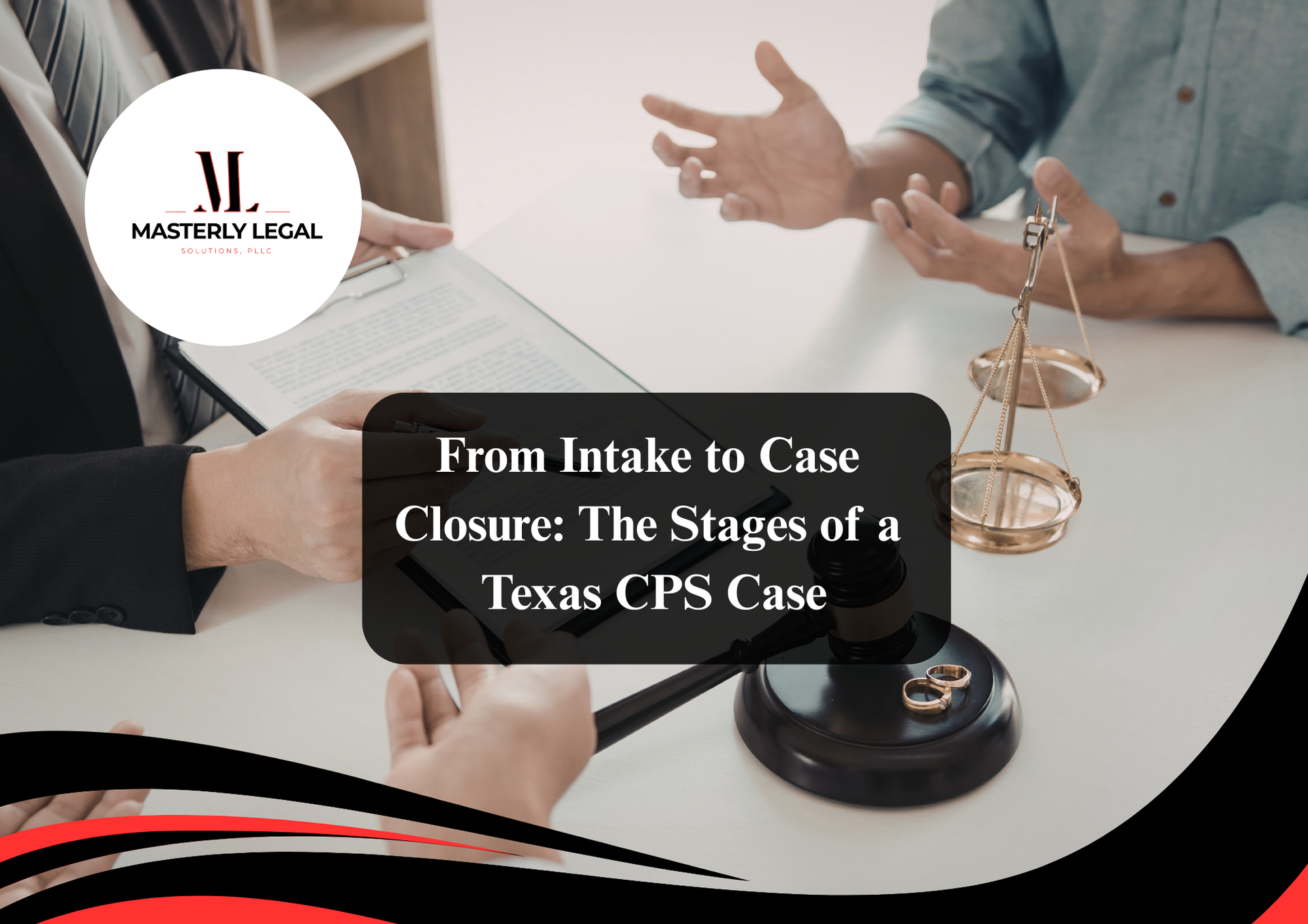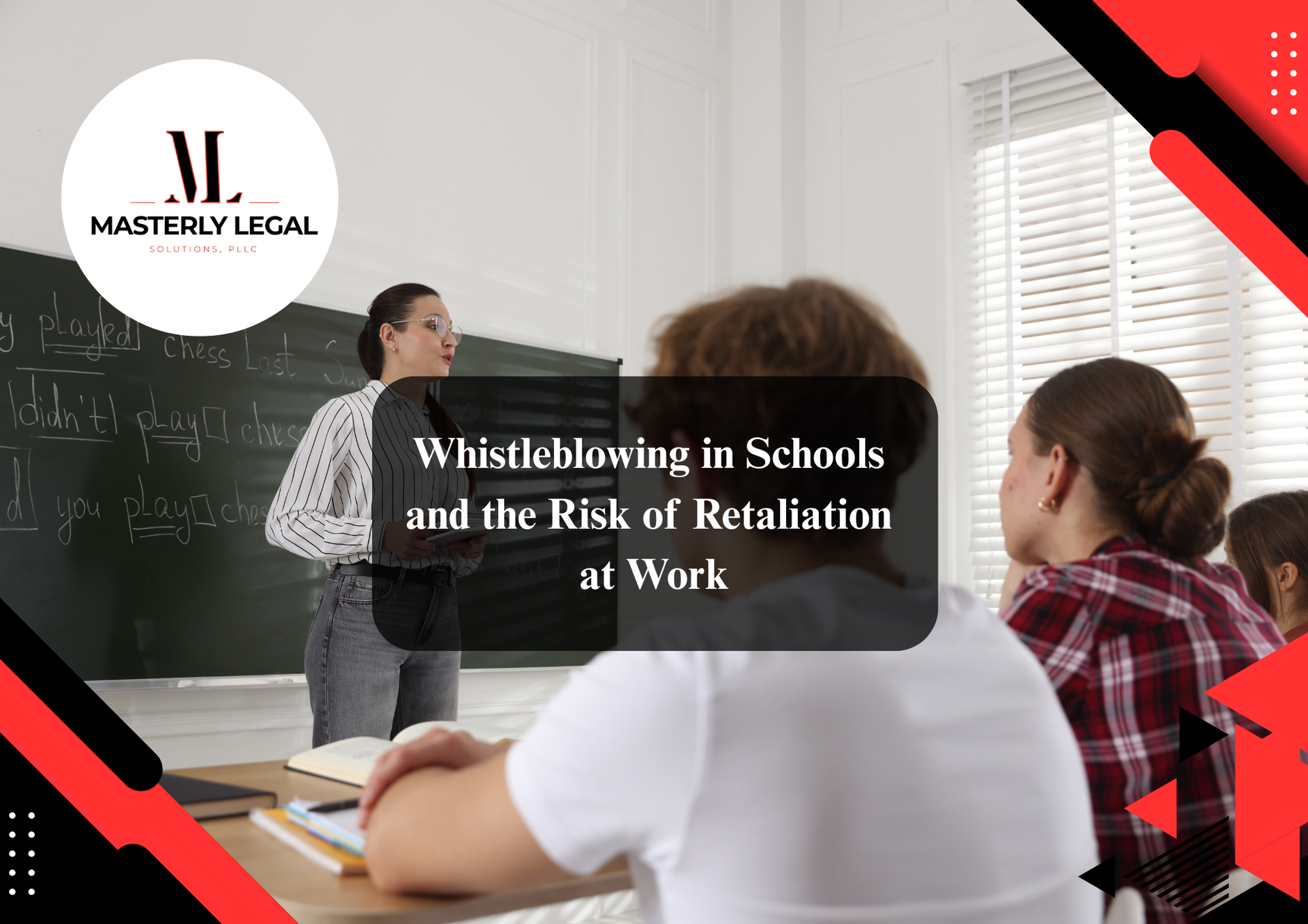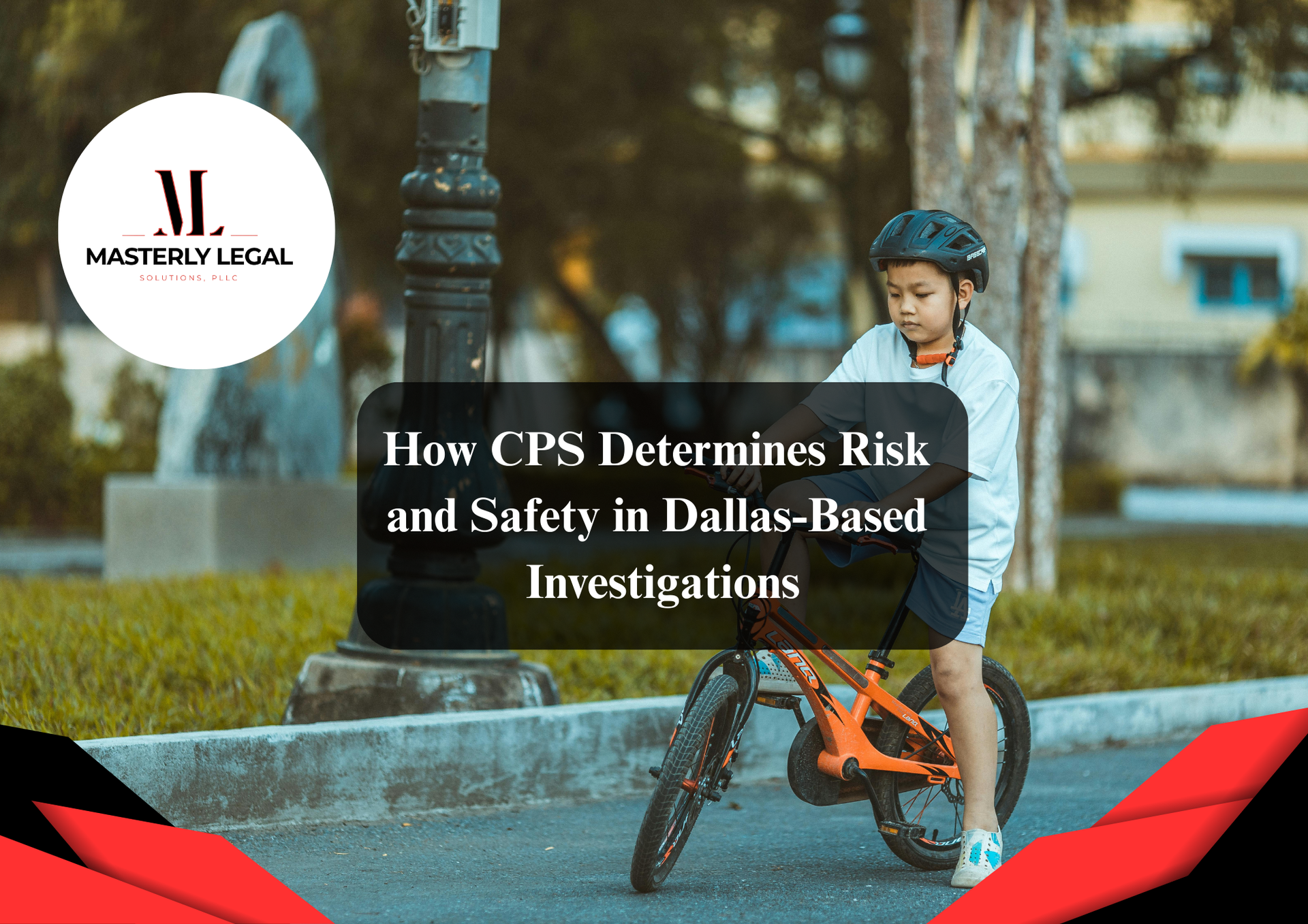The Career Consequences of Ignoring Massive Retaliation in Your School District
Understanding the Weight of Retaliation in Education
Retaliation in the workplace is one of the most damaging issues educators and school employees face today. When retaliation occurs in a school district, it doesn’t just affect the targeted employee—it can harm careers, reputations, and the entire educational environment. Ignoring massive retaliation can cause ripple effects that may last for years, making it crucial to understand both the legal protections and the risks of staying silent.
Employees who engage in protected activity, such as filing complaints of discrimination, reporting misconduct, or refusing to go along with unlawful directives, are legally safeguarded. Under federal law and state laws, employers—including school districts—are prohibited from punishing employees for exercising these legal rights. Yet retaliation continues to be reported in large numbers, especially in education, where power dynamics between teachers, administrators, and boards can make employment discrimination and retaliation particularly complex.
What Retaliation Looks Like in a School Setting
The Many Forms Retaliation Can Take
Retaliation can appear in subtle or obvious ways. While some employers retaliate openly, others take more covert actions that make it difficult to prove.
Some examples of workplace retaliation in school districts include:
- Placing employees on administrative leave without proper justification.
- Threats of termination or being suddenly fired after raising concerns.
- Disproportionate disciplinary action for minor infractions.
- Removing job responsibilities or reassigning someone to undesirable duties.
- Withholding pay, benefits, or opportunities for advancement.
An adverse employment action can range from being placed on paid administrative leave to being completely excluded from key meetings. Even if the employer tries to frame it as “policy,” the impact on the employee’s career can be severe. Retaliation can also come in other forms, such as spreading rumors, isolating an employee, or attempting to discredit their professional standing.
Federal and State Protections Against Retaliation
How the Law Protects School Employees
Both federal and state laws explicitly prohibit retaliation against employees who oppose discrimination or report unlawful practices. For instance, Title VII of the Civil Rights Act and other federal regulations protect employees from retaliation based on race, religion, national origin, disability, and more.
The Equal Employment Opportunity Commission (EEOC) enforces these protections. In fact, employment opportunity commission EEOC investigations are often triggered by complaints filed by school employees. These complaints may involve sexual advances, racial bias, or even misuse of authority. When the EEOC investigates, it looks at whether an adverse action taken against an employee would discourage a reasonable employee from engaging in a protected activity.
In Texas, additional state laws mirror these protections, ensuring that employees in public school districts cannot be punished simply for standing up against unfair practices.
The Role of Administrative Leave in Retaliation
Why Paid Leave Isn’t Always “Neutral”
Many employees believe being placed on paid leave or administrative leave is harmless. However, in the education field, this measure can devastate reputations. Colleagues often assume guilt, even if the investigation ultimately clears the employee.
Extended or unnecessary administrative leave may itself be a form of retaliation. A district might use it as a tool to silence a teacher who reported discrimination based on national origin or religion, or who filed a complaint about a hostile workplace. While paid time might sound beneficial, the status of being removed from duty can permanently damage trust and career opportunities.
Why Ignoring Retaliation Threatens Your Career
Short-Term and Long-Term Consequences
When educators ignore retaliation, they risk:
- Being labeled as “problematic” by supervisors.
- Facing stalled career growth or missed promotions.
- Increasing the chance of eventual termination.
- Experiencing mental health strain from constant workplace hostility.
In the long term, failing to address retaliation can result in a loss of legal rights. If an employee waits too long to take legal action, statutes of limitations under federal and state laws may prevent them from pursuing justice.
Filing Complaints and Seeking Legal Help
Why Timing Matters
Filing a complaint with the EEOC or other federal agencies is often the first step to holding a school district accountable. However, the process requires detailed evidence of the retaliation, including documentation of adverse employment action and patterns of discrimination.
An attorney experienced in employment law can help employees determine the strength of their legal claim and ensure they follow the correct filing deadlines. Without legal help, employees risk losing their chance at a fair outcome.
Examples of Protected Activity in Schools
Employees in education may be protected when engaging in activities such as:
- Reporting discrimination based on disability, race, or national origin.
- Refusing to comply with unlawful sexual advances or harassment.
- Supporting workers who file their own complaints filed with the employment opportunity commission EEOC.
- Speaking out against retaliation that threatens to retaliate against job applicants or new hires.
- Acting as a witness in an investigation into misconduct.
Each of these is considered a protected activity, and punishing employees for engaging in them may open the school district up to serious legal action.
The Employer’s Responsibility Under Employment Law
How Districts Must Respond
An employer has a duty under employment law to protect employees who oppose discrimination. Failure to do so not only risks a lawsuit but also damages the district’s reputation. Supervisors who attempt to retaliate against teachers or staff could expose the entire district to liability under federal and state laws.
Districts are expected to:
- Create policies that prohibit retaliation.
- Investigate complaints fairly and without bias.
- Provide equal opportunities for all employees, regardless of status or background.
- Take corrective disciplinary action against those who violate the law.
Why Legal Representation Is Essential
Protecting Your Job and Your Future
Employees should never assume that retaliation will resolve itself. A skilled attorney in Texas who specializes in employment law can help you protect your career by:
- Gathering evidence of retaliation.
- Helping you determine whether your situation meets the threshold of a legal claim.
- Representing you in hearings, mediations, or court.
- Ensuring that your legal rights are preserved under both federal law and state laws.
With professional legal help, educators can take control of their future and stop districts from using retaliation as a weapon against employees who speak out.
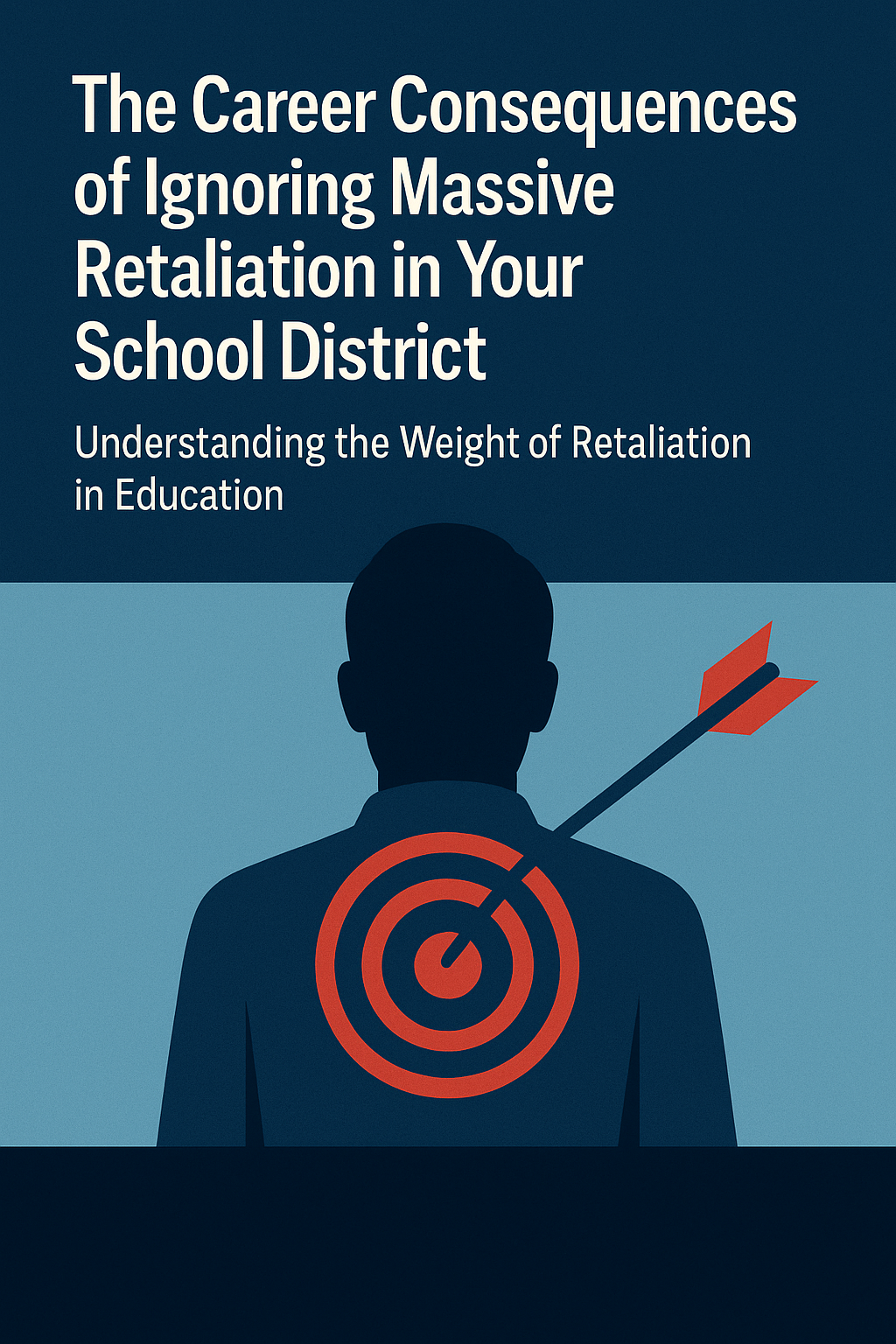
Why You Shouldn’t Wait to Act
Delaying Only Strengthens the Employer’s Position
The longer an employee waits to address retaliation, the harder it becomes to prove. Memories fade, evidence disappears, and school districts often act quickly to justify their decisions. Meanwhile, an employer can attempt to frame the disciplinary action as unrelated to the complaint, weakening your legal action.
For many educators, waiting leads to one of the worst outcomes: losing their job entirely, sometimes without the chance to fight back. Taking early steps to file a complaint or consult with an attorney may mean the difference between saving your career and walking away defeated.
How Retaliation Violations Impact Your Career
School districts that engage in retaliation often commit serious violations of employment law, exposing themselves to liability and long-term reputational harm. For the employee, however, these unlawful actions can derail a career if left unchallenged. Ignoring retaliation not only signals to the employer that such conduct will go unchecked, but it also increases the likelihood of repeated offenses against other staff. Documenting these violations and seeking legal help ensures that your rights are protected and that the school district is held accountable under both federal and state standards.
The Role of the EEOC in Addressing Workplace Retaliation in Schools
When educators face workplace retaliation, one of the most important safeguards is the Equal Employment Opportunity Commission. The employment opportunity commission EEOC is the federal agency responsible for enforcing anti-retaliation protections under civil rights laws. In many cases, being placed on paid administrative leave may appear neutral, but when tied to a prior complaint of discrimination or misconduct reporting, it can serve as a retaliatory act. Employees who ignore these warning signs risk long-term career damage, from loss of credibility to blocked advancement. Filing with the EEOC and pursuing legal action may be necessary steps to ensure your rights are fully protected and your professional reputation remains intact.
Contact Masterly Legal Solutions Today
If you believe you are experiencing workplace retaliation in your school district, you do not need to face it alone. At Masterly Legal Solutions, our experienced attorneys focus on employment law and have helped many employees in Texas stand up against unjust treatment. Whether you’ve been placed on extended administrative leave, denied opportunities, or threatened with termination, we can help you protect your career and your future.
We invite you to reach out for a free consultation so we can answer your questions about retaliation and discuss how the law applies to your situation. Contact us today at (972) 236-5051 to take the first step toward safeguarding your professional standing and ensuring your voice is heard.
Notice: This post is not legal advice; it is merely informational in nature. Speak with an attorney immediately for advice on your particular case.
Looking for Legal & Business Solutions? Contact Us Now
Fill in the form or call us to set up a meeting

